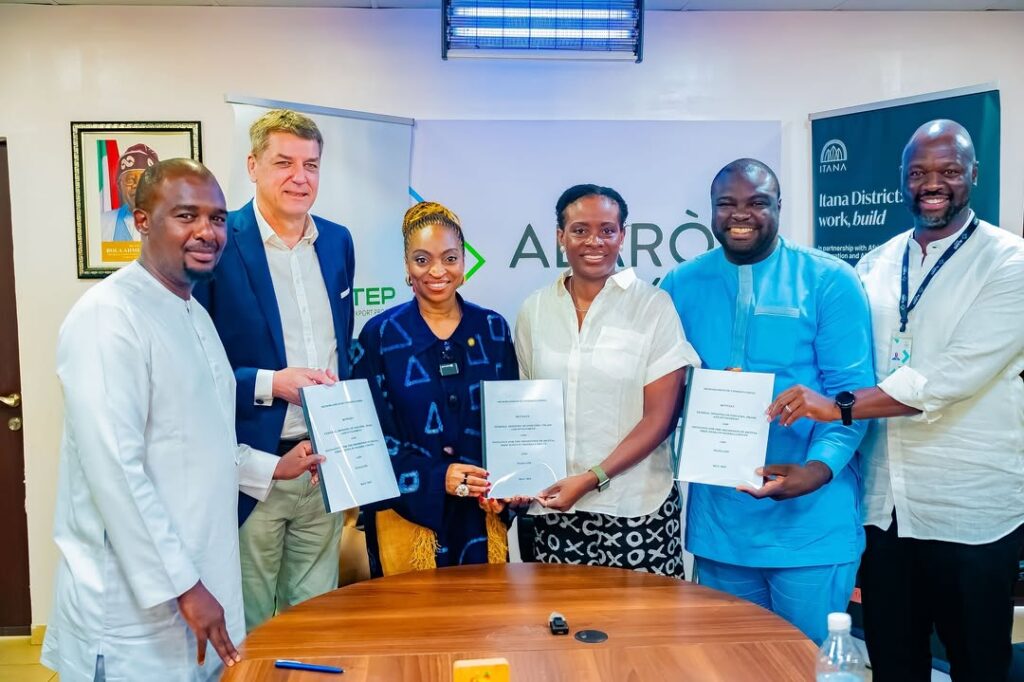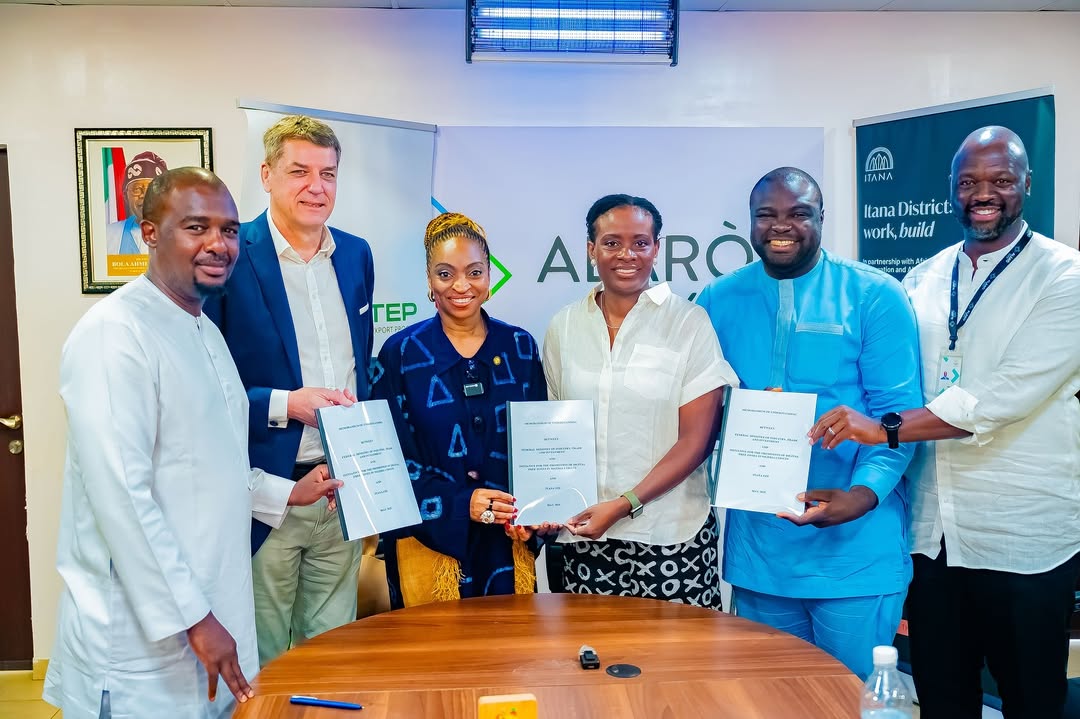Standing beneath a banner that read “Live, Work, Build”, officials from Nigeria’s Ministry of Industry, Trade and Investment joined the leadership of Itana at Alaro City Free Zone this week to sign a cooperation agreement that, on paper at least, could redraw the country’s digital-services landscape.

Presiding over the ceremony was Dr Jumoke Oduwole, the recently appointed Minister of Industry, Trade and Investment. Over the past year, she has championed new-economy exports in speeches from Abuja to Davos, delivering polished, data-rich presentations and an approachable smile during President Bola Tinubu’s investment roadshows. Her message has been consistent: Nigeria can earn as much from coding and customer-success contracts as it does from crude oil, provided the right regulatory scaffolding is in place.
Under the agreement Itana, formerly Talent City, is now recognised as a participant in the federally backed National Talent Export Programme, NATEP. The zone has pledged to help create one hundred thousand technology and business-process-outsourcing roles as an opening contribution to NATEP’s goal of training ten million Nigerians and placing one million of them in export-linked positions by 2030.
From informal talks to formal partnership
A February workshop tested how Itana’s self-service company-registration engine fits with the African Continental Free Trade Area Digital Trade Protocol. During that session officials and founders settled practical questions about visa routing, export-earnings reporting and compliance checks. Today’s pact is expected to build on those outcomes by embedding NATEP staff inside Itana’s back office so founders can secure permits and certificates through a single digital dashboard instead of navigating multiple agencies.
What the pact is expected to deliver in practice
- Regulatory status
Companies that incorporate via Itana’s platform gain duty waivers, lighter taxation and faster immigration processing. - One-stop onboarding
NATEP personnel stationed on site handle every stage of paperwork while Itana supplies a cloud interface for filings and fee payments. - Skills-to-export pipeline
Graduates of NATEP training programmes step directly into vacancies inside the zone, giving the ministry quick evidence of job creation.

The champions behind the project
The most vocal private advocate remains Iyinoluwa Aboyeji, co-founder of Andela and Flutterwave. After watching both unicorns register in Delaware to satisfy investors, he argues that Itana can offer comparable legal certainty while keeping corporate equity and tax revenues in Nigeria. His social channels chart every milestone, from app updates that mint digital-residency passes to networking sessions with Africa-focused funds in London.
Silicon Valley investor Peter Thiel joined as an early backer through his charter-city investment vehicle, Pronomos Capital. This support helped Itana attract additional institutional interest, including advisory input from the Charter Cities Institute and preliminary infrastructure-finance discussions with Africa Finance Corporation.
Concrete, code and the ticking clock
Site preparation on the seventy-two-thousand-square-metre starter campus is due to begin before the rainy season. If construction stays on schedule, the founders expect to issue blockchain-secured Itana Passports to the first digital residents in the third quarter of 2025, allowing employers in Berlin or Singapore to hire Nigerian developers who remain physically in Lagos yet operate inside a compliant export-oriented jurisdiction.

Why the stakes are high
Nigeria has long spoken of converting its youthful, English-speaking population into significant foreign-currency earnings from services. By tying a privately led digital city to a national talent-export agenda, the government is testing whether a streamlined enclave can turn that ambition into measurable growth. Success could give other African states a ready-made model. Failure would provide further ammunition to critics who doubt the viability of special-zone experiments.
For now Dr Oduwole’s ministry and Itana’s investors appear aligned, confident that a city written in code and delivered in concrete can help transform Nigeria’s economic story.
This article was rewritten with the aid of AI
At Techsoma, we embrace AI and understand our role in providing context, driving narrative and changing culture.













